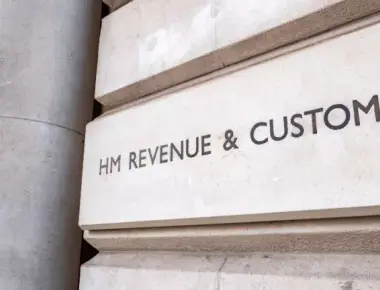![HM Revenue & Customs (HMRC) [Complete 2025 Guide to UK Taxes, Benefits, and Refunds]](/static/1a2a16902107024713b0adc50ad58b87/144fe/im.jpg)
![HMRC and the UK State Pension Tax [Everything You Need to Know]](/static/2da552f3d27fbf43d2175b17c15d239d/36eaa/hmrc.jpg)
HMRC and the UK State Pension Tax [Everything You Need to Know]
Prelude on HMRC and the UK State Pension Tax
For millions of people in the United Kingdom, the State Pension is a lifeline in retirement. Yet, many retirees are surprised when they discover that their state pension is not always tax-free. Every year, thousands of pensioners receive letters from HMRC about tax underpayments or adjustments, often leaving them confused and frustrated.
The reality is that the UK tax system treats the state pension like other forms of income. That means it counts towards your taxable income and can push you into a higher tax band if you also have private pensions, savings, or employment income.
This article provides a comprehensive guide to HMRC and the taxation of the UK State Pension. We’ll explore the rules, how taxes are collected, why HMRC sends those confusing letters, and what you can do to avoid overpaying. Whether you are retired, approaching retirement, or planning ahead, this guide will help you understand how state pension taxation works in practice.
Is the UK State Pension Taxable?
The short answer is Yes, the UK State Pension is taxable income.
However, there’s an important detail, the Department for Work and Pensions (DWP) does not deduct tax at source. Unlike a salary where your employer applies PAYE, your full state pension is paid before tax. HMRC then expects you to pay the tax owed through other income sources or via an assessment.
Key points
The full amount of state pension you receive counts towards your annual taxable income.
If your total income is below the personal allowance, you won’t pay any tax.
If you have private pensions, salary, or savings interest, the state pension could push you into a higher band.
Tax Bands and the State Pension
Here’s how the 2025/26 UK tax bands apply to pensioners
| Income Band | Tax Rate | Income Range (2025/26) |
|---|---|---|
| Personal Allowance | 0% | Up to £12,570 |
| Basic Rate | 20% | £12,571 – £50,270 |
| Higher Rate | 40% | £50,271 – £125,140 |
| Additional Rate | 45% | Over £125,140 |
Example 1, State Pension Only
State pension (full new pension, 2025/26) - £11,502
Below the £12,570 personal allowance → No tax due
Example 2, State Pension + Small Private Pension
State pension - £11,502
Private pension - £6,000
Total income - £17,502
Taxable income - £4,932 above personal allowance
Tax due - 20% of £4,932 = £986.40
Example 3, State Pension + Salary
State pension - £11,502
Part-time job - £20,000
Total income - £31,502
Taxable income - £18,932
Tax due - £3,786.40
This is why HMRC often sends tax letters — pensioners with mixed income sources can end up underpaying tax if not properly coded.
How HMRC Collects State Pension Tax
Since the state pension is paid gross, HMRC collects tax in other ways
- Adjusting Your Tax Code
If you have another source of PAYE income (job or private pension), HMRC reduces your tax-free allowance in your code to account for state pension.
Example, If your state pension is £11,502, HMRC may reduce your allowance so tax is collected on your other pension.
- Self-Assessment
If you don’t have PAYE income to adjust, HMRC may require you to complete a self-assessment tax return.
You’ll then pay the tax directly.
- Direct Demands
Sometimes HMRC sends simple assessments or payment demands, especially if underpaid tax is discovered after the year ends.
HMRC State Pension Tax Letters Explained
Every year, thousands of pensioners receive letters from HMRC with unexpected tax bills or notices.
Common letters
P800 Calculation - Tells you if you’ve underpaid or overpaid tax.
Simple Assessment - A bill showing how much tax you owe, often due to state pension not being taxed at source.
Tax Code Notices - Adjustments applied to your private pension or employment income.
Why HMRC State Pension Tax confusion happens
HMRC bases estimates on past income. if your pension increases, their coding may be wrong.
State pension starts part-way through a year. tax calculations become messy.
Pensioners with multiple income sources. double counting or missed income.
Tip - Always check HMRC letters carefully. Errors are common.
Common Scenarios That Cause HMRC State Pension Tax Confusion
- Retiring Mid-Year
- If you retire halfway through a tax year, your income may straddle salary and pension. HMRC may miscalculate.
- Having Both Private and State Pensions
- HMRC often uses one income stream to collect tax on another. If your provider doesn’t update details quickly, you may be taxed incorrectly.
- Working While Claiming Pension
- Part-time earnings combined with pension often lead to higher tax than expected.
- Expatriates and Double Taxation
- UK pensioners living abroad may still owe UK tax, depending on treaties.
Some countries (e.g., US, Australia) have agreements to avoid double taxation, but rules are complex.
Interaction with Personal Allowances and Benefits
The state pension counts towards your personal allowance.
If your pension exceeds the allowance, tax is due.
Other benefits such as Pension Credit, Winter Fuel Allowance, Attendance Allowance are not taxable.
How to Avoid Overpaying State Pension Tax
- Check Your Tax Code
Ensure your code reflects the correct state pension amount.
- Review Annual HMRC Letters
Don’t assume they’re correct — many contain errors.
- Claim Refunds
If you’ve overpaid, you can request a refund online or via form R40.
- Use Self-Assessment Wisely
If you have multiple income sources, voluntary self-assessment may avoid surprises.
Future Outlook on State Pension Taxation
Pension age continues to rise (67 by 2028, with further reviews planned).
Political debates over tax-free allowances may affect future pensioners.
Experts predict more HMRC letters and confusion as older workers mix pensions with employment.
FAQs on State Pension Tax
Q - Do I pay National Insurance on my state pension? No. NI contributions stop once you reach state pension age.
Q - Can my state pension push me into higher tax bands? Yes, especially if you have private pensions or other income.
Q - Why did HMRC send me a tax bill if my pension is below the allowance? It may be an error — always contact HMRC to clarify.
Q - Are pensions taxed abroad? It depends on double taxation treaties. In many cases, UK state pension is taxable in the UK.
Conclusion on HMRC and State Pension Tax in United Kingdom
The UK State Pension is taxable income, and while the rules seem simple in theory, the way HMRC applies them often causes confusion. Pensioners frequently receive unexpected letters, tax code adjustments, or bills because the system doesn’t deduct tax at source.
The key to avoiding problems is
Understand that state pension counts as income.
Check HMRC letters and tax codes carefully.
Be proactive about claiming refunds or correcting errors.
By planning ahead, retirees can reduce stress, avoid overpayment, and make the most of their hard-earned pension.
Tags
Share
Quick Links


![HMRC Letters and the State Pension Tax Confusion [What You Need to Know]](/static/5065f0d79fe1a053c2c9d68d0f796469/19188/image.png)

![The 2026 "Sticky Inflation" Playbook [How to Build a Portfolio That Beats the New Economic Cycle]](/static/e571e3694d53037f9d392b431818ba3b/144fe/im.jpg)

![Tanzania Tea Packers Limited (TATEPA) Public Announcement – November 2025 [A Comprehensive Investor and Industry Analysis]](/static/1118ed6b655f885f894069eb2ae25ee6/144fe/im.jpg)